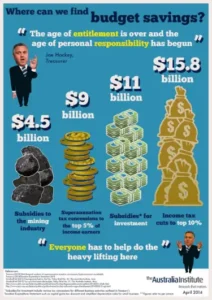Introduction
Donations and lobbying from corporate interests have long been a contentious issue in Australian politics. These practices have increased in recent years, affecting the democratic process. The influence of big corporations on political decisions has resulted in policies favouring them at the expense of the Australian people. This article explores the depth of this issue and proposes solutions to restore democratic integrity.
The Historical Context of Corporate Influence
Corporate influence in politics is not new. Historically, businesses have looked to sway political decisions to align with their interests. However, the scale and impact of such influence have grown significantly in recent decades. The rise of neoliberal policies has further entrenched corporate power in the political sphere, leading to a system where the interests of the few often outweigh the needs of the many.
Corporate Donations: A Threat to Democratic Balance

Corporate donations serve as the financial backbone of political influence. These donations can create a dependency that compromises the impartiality of elected officials. Politicians reliant on corporate donations may feel obligated to support policies favourable to their donors, even if such policies are detrimental to the public interest. This imbalance challenges the democratic principle of equal representation, raising concerns about the integrity of our political system.
Examples of Corporate Influence
– Mining Industry: Favourable policies towards mining companies, despite environmental and social concerns.
– Pharmaceutical Industry: High drug prices due to lack of regulation, affecting public health.
Lobbying: Shaping Policies Behind Closed Door
Lobbying in Australia, though legal, often results in political decisions favouring corporations with substantial financial resources. This disproportionate influence can overshadow the needs and voices of ordinary citizens, leading to policies that Favour the wealthy at the expense of the broader population.
Impact of Lobbying on Policy
– Tax Policies: Loopholes and lower tax rates for large corporations.
– Environmental Regulations: Lenient policies helping industrial polluters.
The Broader Implications of Corporate Influence
The influence of corporate donations and lobbying extends beyond specific policies. It undermines the very essence of democracy, where every citizen’s voice should be equally heard. When corporate interests dominate, the needs of ordinary Australians are sidelined, leading to growing public disillusionment and eroding trust in the political system.
The Erosion of Public Trust
Public trust in political institutions is crucial for a functioning democracy. When people perceive that politicians are more responsive to corporate donors than to their constituents, trust erodes. This can lead to lower voter turnout, increased political apathy, and a weakened democratic process.
The Economic Divide
Policies favouring corporations often worsen economic inequality. Tax breaks and subsidies for large businesses can lead to reduced public spending on essential services like healthcare and education, widening the gap between the rich and the poor.
Restoring Balance: The Need for Regulatory Reform
Restoring democratic integrity requires comprehensive reform. It is essential to implement regulations that limit corporate donations and increase transparency in lobbying activities. This will help ensure that political decisions prioritize the public interest.
Proposed Reforms
1. Limit Corporate Donations: Set up clear limits on the amount corporations can donate to political parties and candidates.
2. Transparency in Lobbying: Require detailed disclosure of lobbying activities and expenditures.
3. Strengthen Anti-Corruption Measures: Enhance the powers and resources of anti-corruption bodies to investigate and act against undue corporate influence.
Conclusion
The influence of corporate donations and lobbying on Australian democracy is a significant concern. These practices have skewed policymaking in favour of corporations, undermining public welfare and the principles of democratic representation. It is imperative to implement regulatory reforms to restore balance and ensure that our democracy works for everyone, not just those with deep pockets.
Question for Readers
Do you believe that the current level of corporate influence in Australian politics serves the public interest?
Call to Action
Advocate for policy reforms to limit corporate donations and lobbying influence in Australian politics. Support movements and legislation that aim to restore democratic balance and ensure that political decisions prioritize public welfare over corporate profits.
Share and Engage
If you found this article insightful, please share it with your contacts and on social media to spread awareness about the need for political reform.
References:
Political donations and the resources sector’s influence: https://publicintegrity.org.au/political-donations-and-the-resources-sectors-influence/
Five things political donations tell us about how money is influencing Australian politics: https://www.abc.net.au/news/2019-11-07/political-donations-how-money-is-changing-australian-politics/11679350
Lobbying 101: https://theconversation.com/lobbying-101-how-interest-groups-influence-politicians-and-the-public-to-get-what-they-want-60569
Australia’s political lobbying regime is broken and needs urgent reform: https://www.themandarin.com.au/115744-australias-political-lobbying-regime-is-broken-and-needs-urgent-reform/

